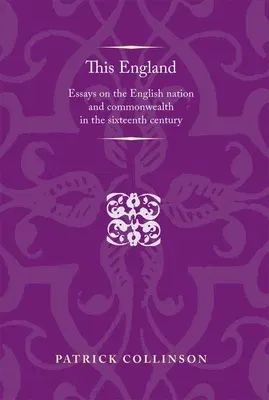Patrick Collinson
(Author)This England: Essays on the English Nation and Commonwealth in the Sixteenth CenturyPaperback, 28 February 2013

Qty
1
Turbo
Ships in 2 - 3 days
In Stock
Free Delivery
Cash on Delivery
15 Days
Free Returns
Secure Checkout

Part of Series
Politics, Culture and Society in Early Modern Britain
Part of Series
Politics Culture and Society in Early Modern Britain Mup
Print Length
328 pages
Language
English
Publisher
Manchester University Press
Date Published
28 Feb 2013
ISBN-10
0719090253
ISBN-13
9780719090257
Description
Product Details
Author:
Book Format:
Paperback
Country of Origin:
US
Date Published:
28 February 2013
Dimensions:
23.39 x
15.6 x
1.75 cm
ISBN-10:
0719090253
ISBN-13:
9780719090257
Language:
English
Location:
Manchester
Pages:
328
Publisher:
Series:
Weight:
458.13 gm